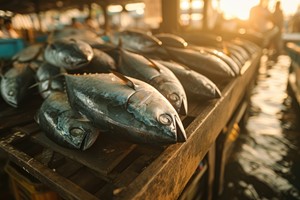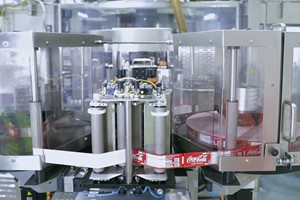The New South Wales Department of Primary Industries (NSW DPI) has unveiled the inaugural edition of the Citrus Microbial Food Safety Best Practice Guide. Dr Sukhvinder Pal Singh, Senior Research Scientist in Food Safety and Traceability at NSW DPI, highlighted the guide's significance, offering a targeted and practical resource for citrus growers, packers, and other stakeholders to effectively assess and manage microbial risks in citrus production.
Dr Singh emphasized the critical role of maintaining high food safety standards in the Australian citrus industry, which produced 760,000 tonnes of fruit valued at $910 million in 2021–2022. With a focus on sustaining a clean, green, and safe reputation, Dr Singh stressed the necessity for consistent supply of safe fruit to retain market share in key export markets, aiming for zero product recalls.
Despite the relatively low microbial food safety risk posed by citrus fruit due to its inedible peel, Dr Singh underscored the potential repercussions of pathogens detected on citrus fruit surfaces by regulatory authorities, including produce recalls, reputational damage, and trade risks for export markets. Consequently, the industry must adopt proactive measures to uphold consumer confidence, regulatory compliance, and trade partnerships.
The guide offers comprehensive advice on best practice management throughout the citrus production cycle, encompassing fruit production, harvest practices, and postharvest procedures. By implementing these proactive measures, stakeholders can minimize the risk of microbial pathogens, ensuring adherence to food safety and hygiene standards while upholding the industry's reputation for delivering safe and healthy produce.
Dr Anthony Kachenko, General Manager for Production and Sustainability at Hort Innovation, hailed the release of the guide as a valuable resource for all industry participants. He urged stakeholders to engage with the guide and integrate its best practice measures to safeguard the quality and safety of citrus fruit, prioritizing the protection of the industry's reputation.
Vito Mancini, a prominent citrus grower and industry leader from the Riverina region, welcomed the guide's launch, applauding its foundation on the latest scientific research, data, and industry practices. Mr. Mancini emphasized the guide's thoroughness, urging all Australian citrus growers and packers to familiarize themselves with its contents to enhance their food safety risk mitigation knowledge.
The Citrus Microbial Food Safety Best Practice Guide is available for access on the DPI website at www.dpi.nsw.gov.au. This initiative has been made possible through funding from Hort Innovation, utilizing the citrus research and development levy along with contributions from the Australian Government. Hort Innovation serves as the grower-owned, not-for-profit research and development corporation for Australian horticulture, dedicated to advancing the industry's interests and sustainability.
Through the dissemination of this comprehensive guide, the NSW DPI aims to fortify the resilience and competitiveness of the Australian citrus industry, reaffirming its commitment to delivering safe, high-quality produce to domestic and international markets.














